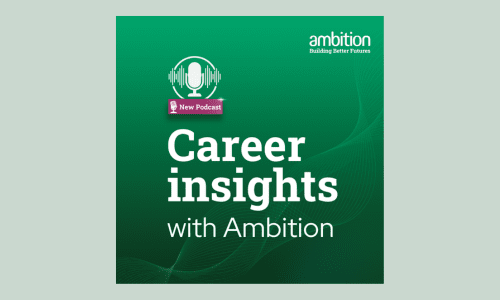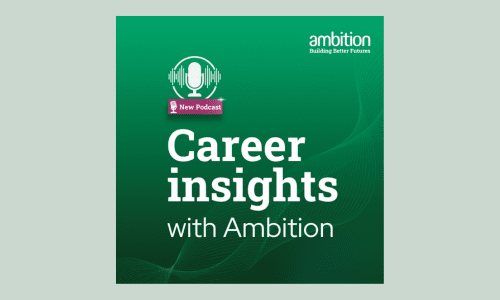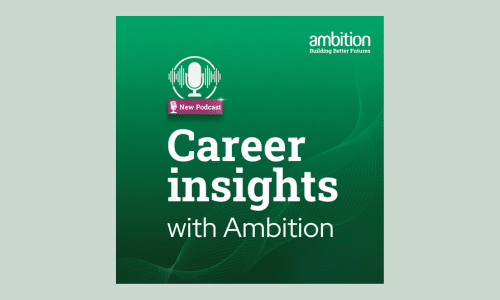Career insights with Ambition podcast
The podcast that dives deep into the defining moments of influential business leaders across technology, accounting and finance.

The podcast that dives deep into the defining moments of influential business leaders across technology, accounting and finance.

The podcast that dives deep into the defining moments of influential business leaders across technology, accounting and finance.

The podcast that dives deep into the defining moments of influential business leaders across technology, accounting and finance.



I recently read a very interesting article, originally published in the Australian Financial Review. Whilst it's not a two-minute read, I promise you it's well worth it.
A few takeaways:
Be very careful when ‘getting into bed’ with the major tech players
Australia has some serious entrepreneurialism if we can keep it in the country
Talent wins… as we are finding with our start-up recruitment offering, HaTCH powered by Ambition
Read the full article below.
Jason Calacanis targets Aussie start-ups and warns against trusting big tech
High-profile Silicon Valley investor Jason Calacanis has hit Australia looking for early-stage start-ups to back after saying San Francisco had become "saturated" with VC money.
Mr Calacanis began his career as a journalist covering dotcom-era US business, before becoming a hugely successful entrepreneur in his own right, with the sale of his Weblogs business to AOL for $US25 million in 2005 setting him on the way to investing in the next wave of prospective tech giants.
Getting in on the ground floor at Uber is his best-known investment, but his impressive portfolio also includes four other so-called "unicorn" companies, which have cracked private valuations north of $US1 billion.
He is in Australia to run his popular LAUNCH Festival start-up and investment event in Sydney, the first time it has left San Francisco. He told The Australian Financial Review he was hoping to make the most of his visit by opening his chequebook for his first Australian investments.
"My basic theory is to never underestimate anyone and that almost every major city has two or three companies in our 'Goldilocks Zone' of investing: which is not too hot, not too cold," Mr Calacanis said.
"By way of the investments I've made – we have really saturated ourselves in San Francisco, so I have a team of 11 people looking at companies to invest and I make the final say.
This is sort of our coming-out party in Australia and if we can leave Sydney with 10 great founders that we've started a relationship with that would be success for us."
Mr Calacanis is well known in the US for ruffling feathers with his unfiltered commentary on the tech industry, and he said he believes major cities like Sydney and Melbourne in Australia and capital cities across Europe are beginning to offer a better environment than San Francisco for aspirational start-up founders.
He said his recent LAUNCH events in San Francisco had been "shaken down" by unions trying to force him to employ more expensive audio-visual staff by sabotaging his venues, and that the chasm between wealth and poverty had created a city that was increasingly dysfunctional.
"It's a horrible city to visit. It's one of the most wonderful groups of people, in a completely mismatched city. The homelessness, the crime, it's a horrible city in many ways right now," he said.
"If you had a choice between going to Sydney, New York, San Francisco and picked 10 random cities in the world … I'm going to guess that San Francisco would be number 10 ... so more people will be looking elsewhere to start and grow companies."
Mr Calacanis said start-up founders should seek him out, as he was open to companies in any category, and he believed his dollars to be worth double those of other angel investors with less influence and acumen.
He describes himself as the best active angel investor in the world, saying that those who were previously better than him have all retired to spend their wealth.
He said good angel investors would eventually hit a big deal (in his case Uber) by working hard, and that then, with judgment, it can snowball to incorporate a suite of big wins.
While he could afford to never work another day in his life, he said he had no desire to retire and let his mind "get old".
"The thing that kills venture capitalists' careers is being good at it. Unless you have something inside of you, where it's not just about wealth, then the money does f--k with people's heads ... I see it happen all the time," he said.
"When people get rich they don't call in sick, they call in rich and decide they are going to go off and buy a farm in Tuscany instead of going to work.
"There's really nothing I like more than winning and being part of a winning team ... so I've got a little bit left. If you retire, you start to become boring and get old and I'm only 46. Intellectually my job is to talk to people who want to change the world – and then decide which one I want to stand next to and say 'go get em'."
Despite his clear self-confidence Mr Calacanis said most successful entrepreneurs feel the sting of failure in their careers. He points out that aside from his standout investments he has backed lots more that have failed to return his money.
His visit to Australia coincided with the voluntary administration of high-profile Australian start-up Unlockd, which blamed Google for killing its business model by looking to kick it off its AdMob and Google Play platforms.
He said he would always back a strong founder who had lost his money if he could see they still had the desire and ability to succeed.
One of Mr Calacanis' earlier ventures, Mahalo, went up against Google in search by human curation rather than relying on algorithms. The business was flying until Google changed its algorithms and Mahalo's traffic plummeted, with the company eventually closing down.
Mr Calacanis pointed to YouTube creators having their revenue streams decimated by changed algorithms, and said start-up founders were mistaken if they trusted big tech platforms not to change the rules on them without warning.
Despite his personal issues with Google, however, he said they and Apple were actually much better to deal with than Facebook.
"The fact is Google has a history of pulling the rug out from under their partners ... and they lie to their partners too about what their intentions are and then flip the rules. As a founder you have to try and have resiliency in your business to handle this, which isn't always possible," he said.
"Google, to its credit, pays out a large amount of money to people. Apple is probably the best partner, paying out 70 per cent with the App Store; and Facebook is the worst because it has just screwed over journalists, celebrities, brands – over and over and over again, and it never shares the money.
"You can't trust the big companies, and should understand that they are going to intentionally or unintentionally destroy your business."
Mr Calacanis has publicly criticised Facebook founder Mark Zuckerberg in the past, and said he had no doubt that when big media companies invest time and money to work with Facebook to tackle "Fake News" he will simply take all the information that is useful to Facebook and then change the rules to exclude them again.
He said companies needed to know the nature of companies they were dealing with when they were to become the foundation of revenue streams. Apple could be great, Google okay, but unreliable and Facebook was "inherently untrustworthy".
"Zuckerberg is the worst of it. He studies everybody's businesses through Facebook connect, through the 'Like' buttons and uses their data to evaluate features and companies before copying and stealing from them," he said.
"Zuckerberg is the biggest thief in the industry. I mean, he stole every feature from Snapchat after they refused to sell to him."
While accepting that some people will think he is bitter, after he "went mad" at Google publicly following the update that killed Mahalo, he said his comments simply showed he was now in a position where he can afford to speak honestly.
This meant that it was valuable as an investor to warn start-up founders of both the obvious benefits and serious dangers of dealing with the big fish in the tech ocean.
He said there were huge positives to be derived from working with the likes of Google, but that he had spoken with many founders who were blinded to his warnings, based on mistaken trust in personal relationships with executives.
"They think; 'oh, no, no, no, I know somebody over there' ... Well I knew Sergey and Larry, and I knew Marissa Mayer," Mr Calacanis said.
"I knew everybody at Google back in the day, and you know what? None of them helped me when I had to lay off 75 writers at Mahalo when they changed their search algorithm and 80 to 90 per cent of our traffic went away overnight."
Having spent some time in Australia Mr Calacanis said he has been impressed by the quality of ideas on display, and feels the country just needs a few more Atlassian-style success stories to create more wealthy angel investors in future companies.
He said he is not a great advocate for government regulating start-ups to success, believing the best thing politicians can do is "get out of the way".
However, he said he had been surprised by restrictions on investors in Australia, which deemed only "sophisticated" investors, with wealth over $2.5 million, could register to invest in start-ups.
"The accreditation rules are pretty severe here. If you found somebody who won the lottery, they would be sophisticated, but if you found an economics professor at the best school here – they would not be sophisticated? It doesn't make much sense," Mr Calacanis said.
"We all know people who got rich because they got lucky or their parents gave it to them, but that doesn't mean they're more sophisticated than a journalist who covers technology or economics ... so I think you have to re-do that law and just make people do a test and get accredited."
Read the original article.